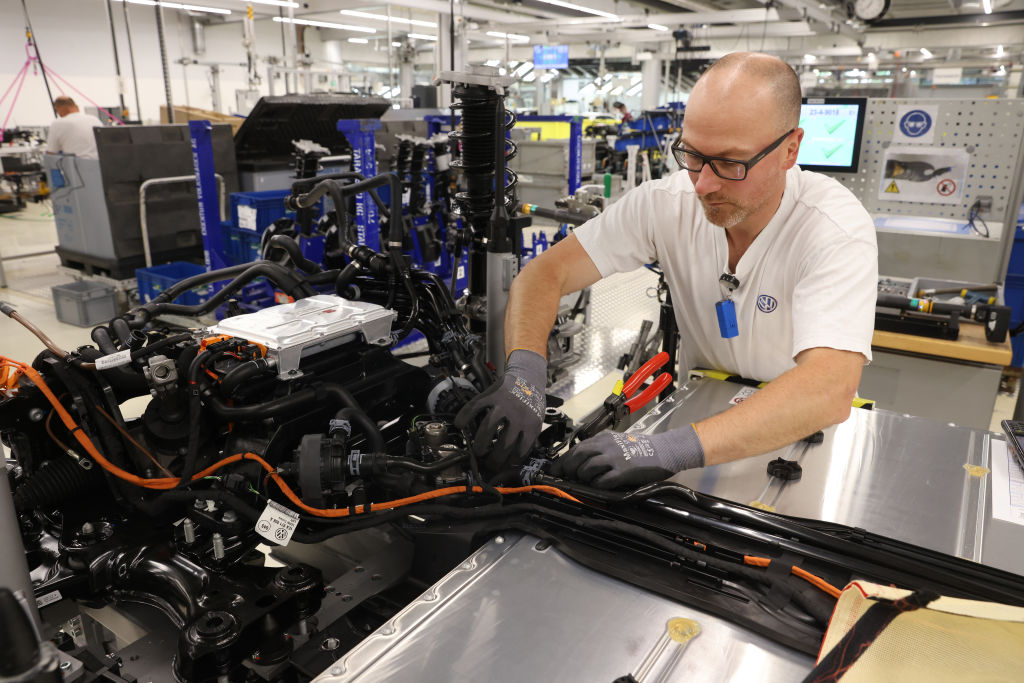That loud noise you hear may be the sound of the Net Zero agenda crashing.
Politicians pushing eco-virtuous policies across the board are coming a cropper against the realisation by ordinary citizens that their actual costs are unsustainable — as in “this new charge to use my car to go to work/get my kids to school five miles away/take Gran to the doctor will cost me upwards of € 5,000 a year” unsustainable.
Almost none of these people are climate change deniers; very few of them disagree with governments’ efforts to limit carbon emissions or to clean up the air; most feel that limiting waste and ridding the seas from millions of tonnes of plastic is a good and necessary thing. It’s just that far away from the happy spin machine that encourages modern leaders to take “bold” initiatives, normal people are perfectly able to smell a rat. (93 per cent of the plastic waste found in the oceans comes from 10 rivers in Asia and Africa, for instance.)
This, in an organic and ethically-sourced nutshell, is how Britain’s Conservative government, which after 14 years in power and the mixed results of Brexit is expected to lose next year’s General Election, nevertheless managed to claw one victory (out of three) in by-elections held last week. The Tories managed to hold Uxbridge and South Ruislip, a suburban constituency west of London, left vacant by Boris Johnson’s resignation last month, not because they hankered after some less blonde and less charismatic Boris replacement, but because of the extension of Ulez, London’s “Ultra Low Emissions Zone”, in which motorists must pay daily to use their cars if they do not meet tough emission standards.
Uxbridge, and the many other neighbourhoods all around the British capital that were about to be hit (starting August 29) by what is in effect a new tax on those who can’t afford a new car, lie as far as 30 miles from Central London, with large greenfield areas, and a far less dense public transport network.
When offered an early occasion to finally make their complaints heard, the locals gave their answer at the ballot. It’s been an entertaining time watching Labour politicians walking back from their perfect dedication to Net Zero since: Sir Keir Starmer, the Labour leader who can read a poll as well as anyone else, has now been accused of “wavering on climate commitments” by the usual eco-NGOs when he refused to commit to spending 83 per cent of the UK’s foreign aid budget on climate change.
Or take the Federal Court cases filed by residents of the New York borough of Staten Island, or the State of New Jersey, against the projected “Congestion Pricing” that would in effect price them out of most of New York altogether, with tolls of $23 a pop. An unlikely alliance of New York Democrats and New Jersey Republicans has come together to prevent a “segregation by money” of the metropolitan area.
France, a large country with vast spaces, was early in pushing back against eco-taxation. Even before the Yellow Vests, whose 2018 nationwide revolt was kicked off by measures introducing highway speed limits and banning older vehicles that disproportionately affected the least affluent and the working poor, the “red caps” of Brittany rose against Socialist President François Hollande’s attempt to set up an “écotaxe” on lorry traffic by means of spying porticoes on the main roads to detect heavy loads.
Parisians increasingly loathe Mayor Anne Hidalgo’s anti-car and “rewilding” measures (her Red-Green coalition has decided not to water Parisian parks, where lawns have turned yellow and flowers have disappeared). As the Socialist presidential candidate last year against Emmanuel Macron’s re-election, Hidalgo scored 2.1 per cent of the vote in the city she leads (and 1.7 per cent nationally).
Mark Rutte’s Dutch government fell due to it banning Dutch farmers, an old and hardy breed, from using necessary pesticides to keep their yields decent. (It’s worth noting the well-meaning 1970s banning of DDT worldwide contributed to the return of malaria, the fifth biggest killer disease in the world, mostly in poor countries in Asia and Africa.)
Sri Lanka’s economy was brought nearly to the stage of a humanitarian disaster by misguided antifertiliser policies pushed by Green Western government advisers to President Gotabaya Rajapaksa, who, seduced by their big talk, had rashly promised in his 2019 election campaign to transition the country to organic agriculture within ten years. His nationwide ban on the importation and use of synthetic fertilisers, imposed without listening to the country’s experts, caused half a million people to slide back into abject poverty. Strangely, Sri Lanka’s 2023 regional elections, normally scheduled last February, have been postposed repeatedly for “technical” reasons.
Even Germany’s Greens, junior partners in the Olaf Scholz coalition, and a more reasonable lot than many, are losing their appeal, as voters factor in the cost of their policies. They lost one third of the vote in the State of Bremen last May, down to third place and a humiliating 12 per cent score; and German polls show the same trend nationwide, around 15 per cent in opinion polls from a peak of 23-24 per cent last year. That’s a sure sign that the current outbreak of common sense is here to stay.






Waking up to reality: There is a Europe wide push back against net zero